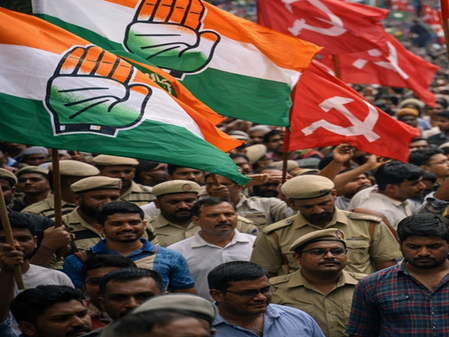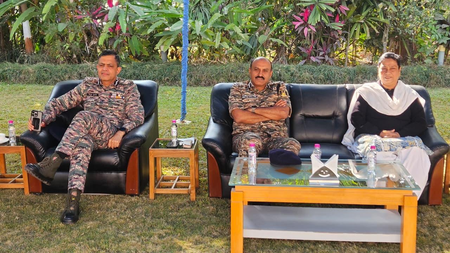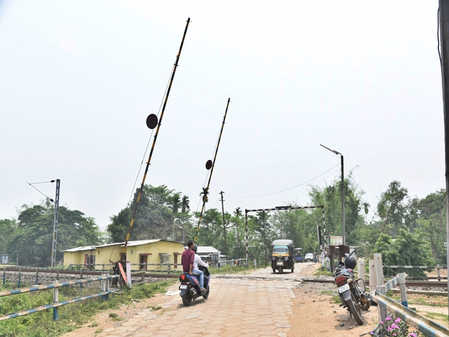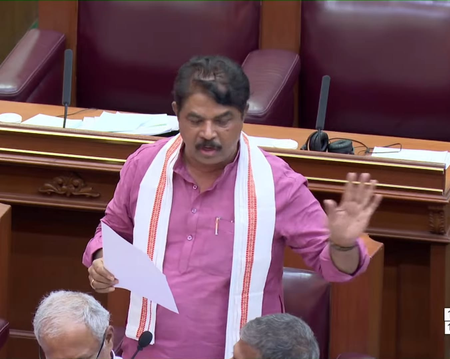
New Delhi, Feb 21 (IANS) The integration of Jammu and Kashmir into the national framework has been marked by a resolute determination and a strong commitment from the region’s populace, despite ongoing attempts by hostile entities to disrupt its socio-political stability. In the late 1980s, Pakistan strategically redirected its militant proxies to incite turmoil in Kashmir, aiming to bolster its narrative of contesting the region’s political status on the international stage.
As Pakistan intensified cross-border terrorism amid a flood of disinformation to sway global perceptions, the Indian Parliament reacted by passing a resolution on February 22, 1994. This resolution unequivocally reaffirmed Jammu and Kashmir’s inalienable status as an integral part of the Union of India, asserting to the international community that its sovereignty over the region—including areas occupied by Pakistan and China—was, is, and will remain unassailable.
This stance effectively countered Islamabad’s portrayal of Jammu and Kashmir as an “unfinished agenda of partition” following the end of British colonial rule in the Indian subcontinent, maintaining that the sole issue regarding Kashmir is to terminate the illegal occupation of Pakistan-Occupied Jammu and Kashmir (POJK) and to fully integrate it with India. The resolution reiterated India’s commitment to employing all possible measures towards achieving this objective.
The resolution categorically condemned Pakistan for its ongoing and systematic “support and encouragement” of insurrectionary and terrorist activities within Jammu and Kashmir. It elucidated Pakistan’s role in perpetuating cross-border insurgency through the “imparting of training to terrorists”, provision of logistical support, including weaponry and financial resources, as well as direct assistance facilitating their infiltration into the region.
By framing Pakistan’s actions as a component of a calculated strategy aimed at engendering “disorder, disharmony, and subversion” within the area, the Indian Parliament further unveiled Islamabad’s relentless “campaign of calumny and falsehood” against New Delhi, characterising such conduct as both reprehensible and entirely unacceptable. Moreover, the resolution underscored the Pakistani state’s egregious violations of universally acknowledged principles governing inter-state relations, alongside its persistent non-compliance with bilateral frameworks, most notably the Simla Agreement (1972), which were specifically established to promote the resolution of outstanding bilateral disputes through diplomatic engagement.
The resolution reaffirmed India’s steadfast position regarding the status of Jammu and Kashmir, explicitly stating that the region “has been, is, and shall be an integral part of India.” Notably, it proclaimed that “any attempts to separate it from the rest of the country will be resisted by all necessary means,” asserting India’s “will and capacity to firmly counter all designs against its unity, sovereignty, and territorial integrity,” while warning Islamabad that its ongoing interference in New Delhi’s internal affairs would provoke a strong response.
A critical and operative element of the resolution is India’s unequivocal assertion of sovereignty over Jammu and Kashmir, evidenced by its categorical demand for Pakistan to immediately “vacate” all territories it unlawfully occupied through acts of aggression in 1947-48.
This occupation was executed by deploying tribal raiders and regular army units, constituting a blatant violation of the Standstill Agreement between Maharaja Hari Singh and the State of Pakistan, as well as the subsequent Instrument of Accession signed on October 26, 1947, which formally integrated Jammu and Kashmir into the Union of India.
It is significant that Pakistan, through its aggressive actions, seized over 90,000 square kilometres of the former princely state, including Gilgit-Baltistan, prior to international diplomatic intervention by the United Nations that imposed a ceasefire, consequently curtailing India’s military efforts to reclaim these territories and resulting in the division of both the region and its populace.
Further exacerbating this act of territorial usurpation was Pakistan’s cession of the strategically significant Shaksgam Valley, a region within Pakistan-Occupied Jammu and Kashmir (POJK), to China under the Sino-Pakistan Border Agreement of 1963. New Delhi has resolutely rejected this action as unlawful and illegitimate, asserting India’s rightful claim to the territory.
Of heightened concern is the continued, systematic marginalisation and subjugation of the inhabitants of POJK, who remain subject to institutionalised discrimination and authoritarian governance under the repressive control of the Pakistan Army.
Consequently, the Indian Parliament has unequivocally condemned Islamabad’s sustained and egregious denial of fundamental human rights and democratic freedoms to the people of POJK, characterising it as a flagrant violation of established international norms governing the treatment of populations under contested and occupied regime.
The February 22 resolution symbolises India’s unwavering resolve to reclaim Pakistan-Occupied Jammu and Kashmir (POJK) from perceived illegal occupation, aiming to foster regional stability by eradicating Islamabad-sponsored terrorism across South Asia.
As India’s global influence expands, driven by economic strength and assertive policies, the resolution’s objective—complete integration of the former Princely State of Jammu and Kashmir via POJK’s retrieval — appears increasingly attainable. The key question has transitioned from ‘how’ to ‘when’ a policy operationalising the reclamation of this integral territory will be enacted. Government ministers have also expressed confidence in this matter.
–IANS
scor/




